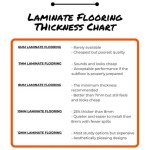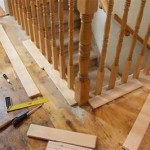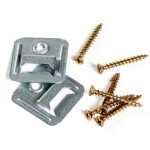Wood Tile Flooring: A Comprehensive Guide
Wood tile flooring, also known as wood-look tile or wood-grain tile, represents a compelling alternative to traditional hardwood flooring. It successfully marries the aesthetic appeal of natural wood with the durability and practicality of ceramic or porcelain tile. This fusion grants homeowners and designers alike a material that boasts both visual warmth and resistance to many of the challenges associated with genuine wood.
The rise in popularity of wood tile flooring stems from its advancements in manufacturing processes. Modern techniques allow manufacturers to create incredibly realistic wood grain patterns, textures, and even subtle variations in color that mimic the appearance of various wood species, from classic oak and maple to more exotic options like bamboo or reclaimed wood. The resulting product is often difficult to distinguish from real wood without close inspection.
Furthermore, wood tile flooring offers significant advantages in terms of maintenance, longevity, and suitability for diverse environments. Its water resistance, scratch resistance, and ease of cleaning make it an ideal choice for high-traffic areas, bathrooms, kitchens, and even basements. This versatility contributes to its growing adoption in both residential and commercial settings.
Durability and Maintenance Advantages
One of the primary reasons homeowners and businesses opt for wood tile flooring is its exceptional durability. Unlike real wood, which is susceptible to scratches, dents, and water damage, wood tile is highly resistant to these common issues. The ceramic or porcelain composition of the tile provides a hard, impervious surface that can withstand heavy foot traffic, pet claws, and dropped objects without showing significant wear and tear.
The inherent water resistance of wood tile is another significant advantage. Real wood can warp, swell, or even rot when exposed to moisture. Wood tile, however, remains unaffected by spills, humidity, and standing water. This makes it a perfect choice for bathrooms, kitchens, and basements, where moisture is a constant concern. It can even be used in outdoor applications, depending on the specific tile's frost resistance rating.
Maintaining wood tile flooring is also remarkably simple. Unlike hardwood, which requires regular polishing, waxing, and refinishing, wood tile only needs occasional sweeping or vacuuming and mopping with a mild detergent. This low-maintenance characteristic translates into significant time and cost savings over the lifespan of the flooring.
The scratch resistance of wood tile is a major selling point for households with pets. Pet claws can easily scratch and damage hardwood floors, requiring costly repairs or refinishing. Wood tile, on the other hand, can withstand the daily wear and tear inflicted by pets without showing visible scratches or damage.
Finally, wood tile is generally more resistant to staining than hardwood. While spills on hardwood need to be addressed immediately to prevent permanent staining, spills on wood tile can be easily wiped clean without leaving a trace. This makes it an ideal choice for families with young children or individuals who entertain frequently.
Aesthetic Versatility and Design Options
The aesthetic versatility of wood tile flooring is astonishing. Manufacturers have perfected the art of replicating the look and feel of various wood species, allowing homeowners to choose from a wide range of colors, grain patterns, and textures. Whether one prefers the classic warmth of oak, the contemporary elegance of maple, or the rustic charm of reclaimed wood, there is a wood tile option to suit every aesthetic preference.
Wood tile is available in a variety of sizes and shapes, allowing for creative and customized installations. Long, plank-shaped tiles are particularly popular, as they closely mimic the look of hardwood flooring. These planks can be installed in a variety of patterns, such as staggered, herringbone, or chevron, to create visually interesting and unique designs.
The grout lines between wood tiles can also be customized to enhance the overall aesthetic. By choosing a grout color that complements or contrasts with the tile, one can create a subtle or dramatic effect. Narrow grout lines can further enhance the realism of the wood-look, while wider grout lines can add a more rustic or contemporary touch.
Beyond replicating traditional wood species, wood tile is also available in a range of unique and unconventional styles. Some manufacturers offer tiles that mimic the look of painted or distressed wood, while others offer tiles with intricate patterns and designs. This allows homeowners to create truly one-of-a-kind flooring that reflects their individual style and personality.
The ability to seamlessly integrate wood tile flooring with other design elements is another key advantage. Wood tile complements a wide range of decorating styles, from traditional to modern, and can be paired with various wall colors, furniture styles, and accessories. Its neutral tones and natural textures provide a versatile backdrop for any interior design scheme.
Installation Considerations and Best Practices
While wood tile flooring offers numerous benefits, proper installation is crucial to ensure its long-term performance and aesthetic appeal. Installing wood tile is similar to installing any other type of ceramic or porcelain tile, but there are a few key considerations to keep in mind.
Subfloor preparation is paramount. The subfloor must be clean, level, and structurally sound to provide a stable base for the tile. Any imperfections in the subfloor can lead to cracked tiles or uneven surfaces. Self-leveling compounds can be used to correct minor imperfections, while major structural issues should be addressed before any tile installation begins.
Choosing the right mortar is also essential. A thin-set mortar specifically designed for porcelain or ceramic tile should be used to ensure proper adhesion. The mortar should be mixed according to the manufacturer's instructions and applied evenly to the subfloor using a notched trowel. The appropriate notch size will depend on the size and type of tile being installed.
Proper spacing between tiles is crucial for creating a consistent and aesthetically pleasing look. Tile spacers should be used to maintain uniform grout lines. The width of the grout lines can be adjusted to suit the desired aesthetic, but it is important to maintain consistency throughout the installation.
Cutting wood tile can be challenging, especially when dealing with intricate patterns or shapes. A wet saw with a diamond blade is recommended for making clean, precise cuts. Safety precautions, such as wearing eye protection and gloves, should always be observed when using power tools.
Grouting is the final step in the installation process. After the mortar has fully cured, the grout lines should be filled with a high-quality grout. The grout should be applied evenly and wiped clean with a damp sponge. The grout should then be allowed to cure according to the manufacturer's instructions before the flooring is subjected to heavy traffic.
For individuals unfamiliar with tile installation, it is highly recommended to hire a professional tile installer. A professional will have the necessary skills, tools, and experience to ensure a proper and long-lasting installation. While professional installation may add to the overall cost, it can save time, money, and frustration in the long run.
In addition to the above considerations, it is also important to choose a wood tile that is appropriate for the intended use. Tiles are rated based on their durability, water resistance, and slip resistance. For high-traffic areas, a tile with a high PEI (Porcelain Enamel Institute) rating is recommended. For bathrooms and kitchens, a tile with a good slip resistance rating is essential to prevent accidents.
Ultimately, wood tile flooring offers a compelling combination of aesthetic appeal, durability, and practicality. Its ability to mimic the look of natural wood while offering superior resistance to water, scratches, and stains makes it an ideal choice for a wide range of applications.

5 Wood Look Tile Flooring Ideas Lowe S

Tips For Achieving Realistic Faux Wood Tile Chris Loves Julia

Natural Wood Floors Vs Look Tile Flooring Which Is Best For Your House Designed

Wood Look Tile Ceramic Porcelain The

Wood Look Tile Flooring All You Need To Know Oasis

Daltile Baker Wood 6 In X 24 Walnut Glazed Porcelain Floor And Wall Tile 0 97 Sq Ft Each Bk10624hd1pr The Home Depot

Creative Ways To Use Wooden Tiles In Your Home Beautiful Homes

Grey Wood Look Tile Best Uses In The House Arizona

New Light Wood Tile Floors In Kitchen

Our New Wood Look Tile Floors Brepurposed
Related Posts








